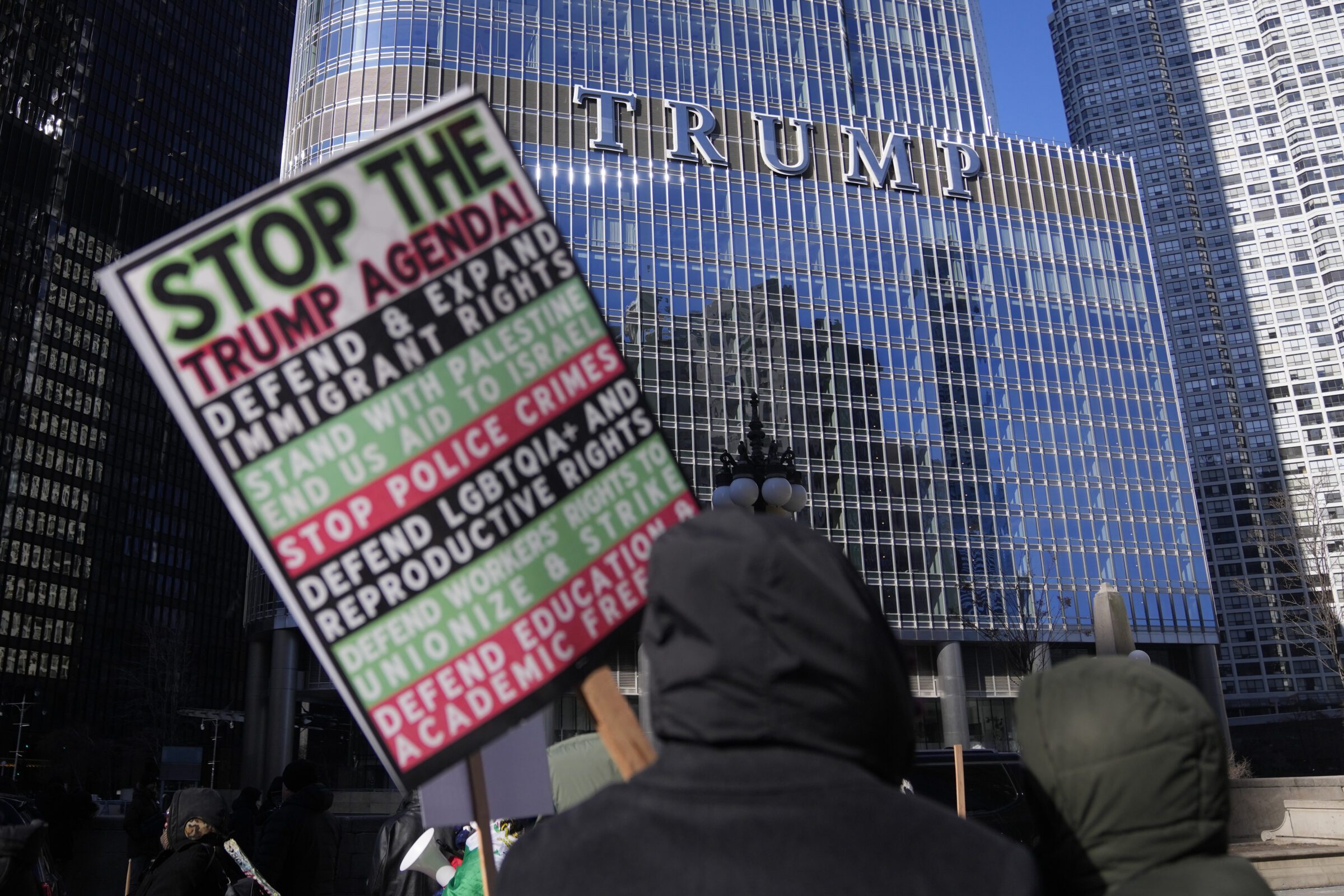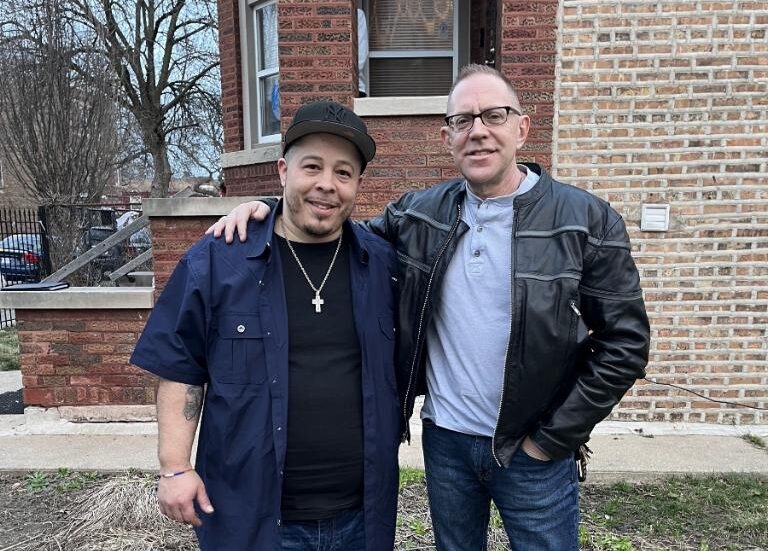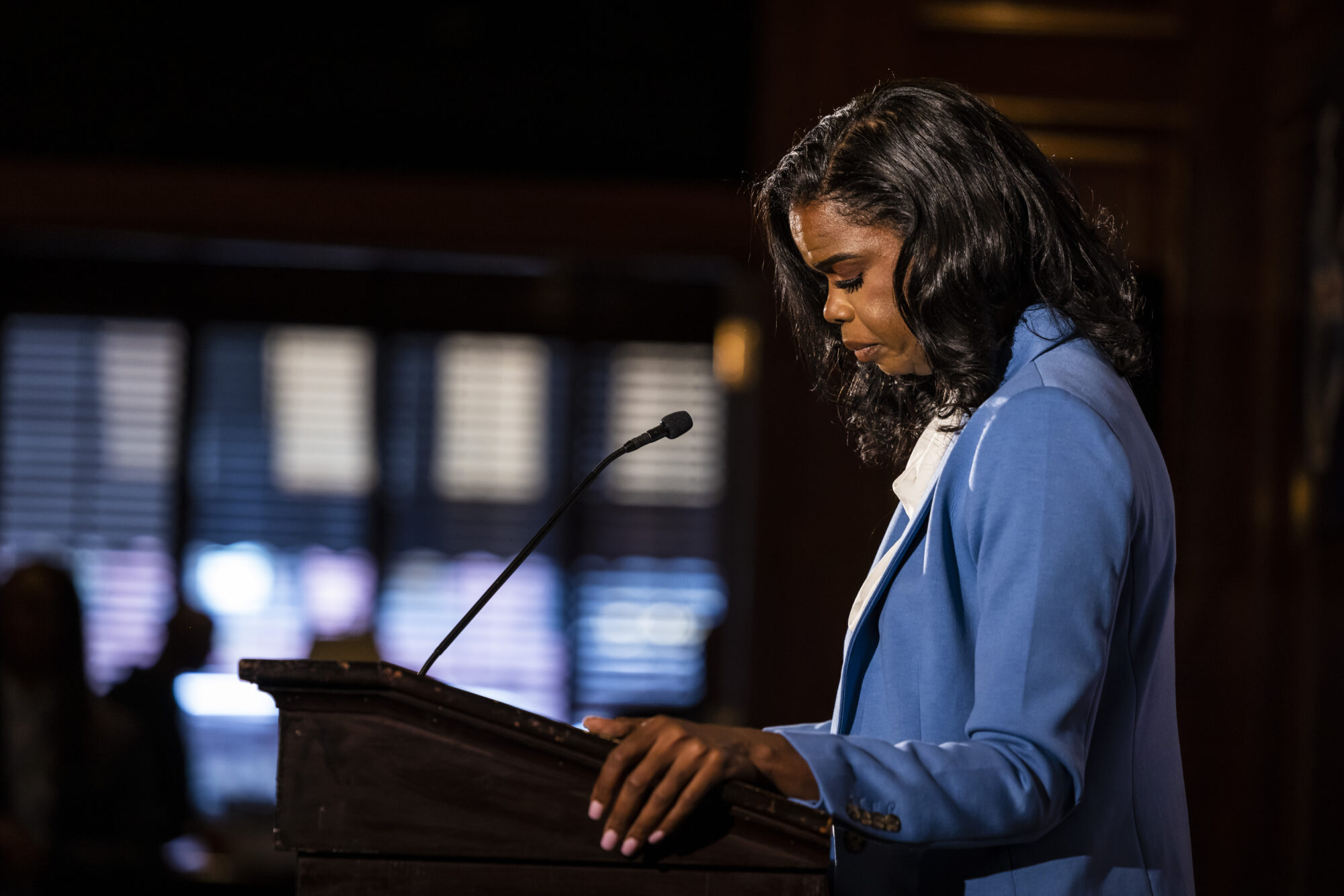Chicago’s Public Defender on Why Illinois Should Fight Trump’s Threats on Cashless Bail
As the president tries to punish jurisdictions with bail reform, Cook County Public Defender Sharone Mitchell, Jr., explains why Illinois ended cash bail—and what he hopes to see next.
| August 29, 2025
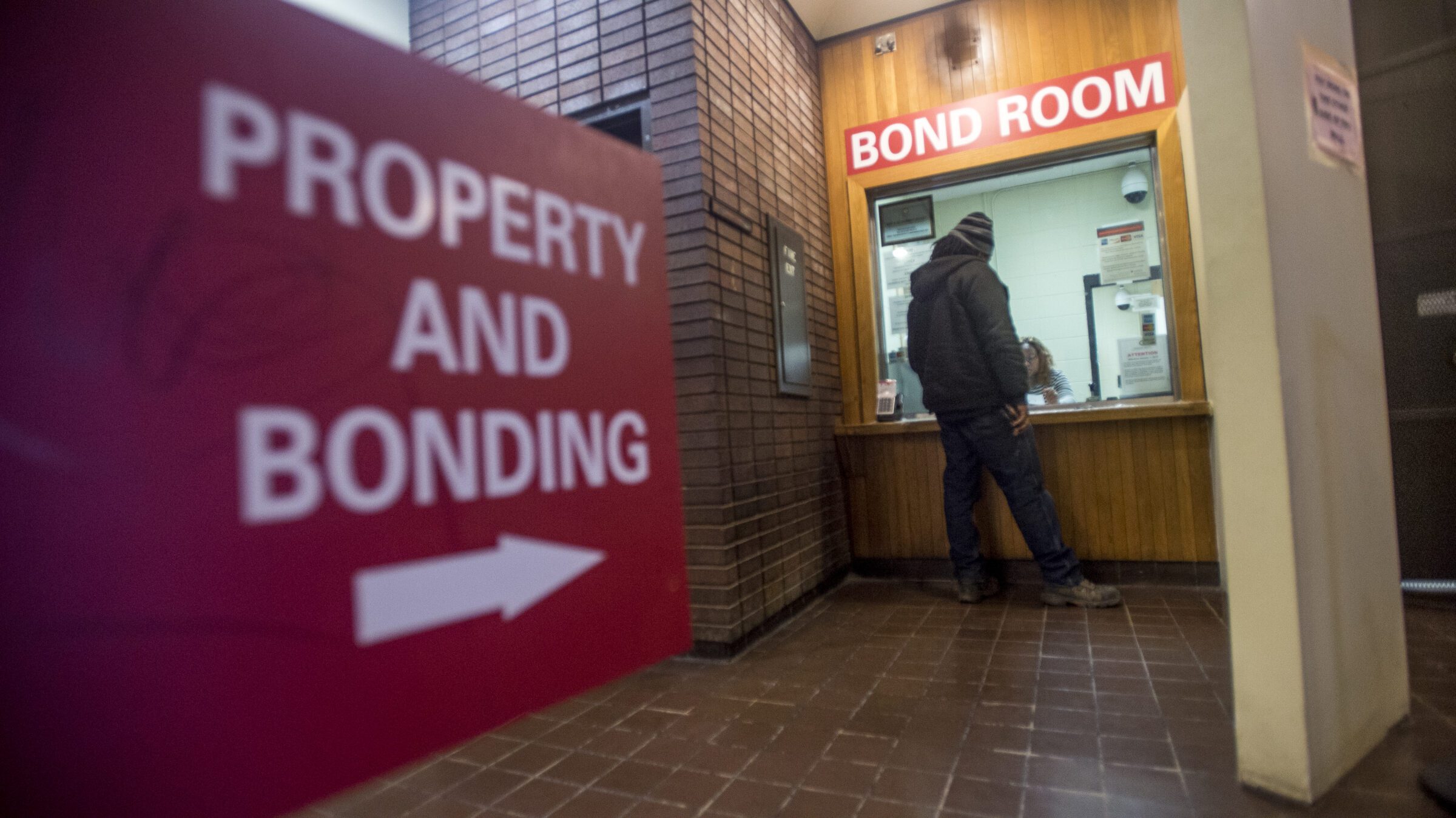
President Trump on Monday issued an executive order that purports to block federal funds from state and local governments that have moved away from cash bail in an effort to stop jailing people just because they can’t afford to pay to secure their release.
The order instructs Attorney General Pam Bondi to identify jurisdictions that have “substantially eliminated cash bail,” to then stop federal contracts and grants they’re receiving. Trump has used the same tactic on immigration, trying to withhold funds from cities and states with sanctuary policies in an attempt to force them to eliminate protections that interfere with his plans, but courts have repeatedly declared the tactic illegal.
Many counties and states have scaled back the use of cash bail in deciding whether to detain someone pretrial, meaning when they are still presumed innocent. This included a bipartisan law that largely abolished money bonds in New Jersey in 2017, as well as landmark reforms in Harris County, Texas, Washington, D.C., and New York State.
But few reforms upended the system as much as in Illinois, which entirely abolished cash bail with a law that went into effect in 2023.
That has put Illinois in the crosshairs of the Trump administration. Trump, who called Chicago “a killing field” and has already targeted it over immigration, is threatening to deploy the National Guard there. He has justified federal takeover of cities as necessary to stop crime, despite falling crime rates.
Sharone Mitchell, Jr., the chief public defender of Cook County (home to Chicago) and a leading champion of the state’s bond reform, says Chicago’s downward trend in crime proves that the new system, which he argues is more fair, is working and hasn’t harmed public safety.
Under the old cash system in Illinois, a judge would decide the amount of money to be paid to secure a person’s release pretrial at a short bond hearing that often lasted less than a minute. In most counties, defense attorneys weren’t even able to meet their clients before those bail hearings, let alone see evidence against them, so they couldn’t present much of a case for why their clients should be released. Advocates say this sent people to jail just because they were poor, affecting their jobs and families, and their ability to defend themselves.
For people charged with crimes in Illinois, those pretrial detention hearings are much more deliberative now, and money is never a consideration. Judges can only incarcerate someone if prosecutors petition for it and convince a judge that they are a threat to the community or are likely to flee justice. Advocates have worked to improve on the new system with policies like the Pretrial Success Act, which seeks to prevent those who are released from reoffending by supporting them with social services that distance them from the conditions that landed them in trouble in the first place.
Bolts talked to Mitchell this week about his response to Trump’s executive order, and about his hopes for the future of the reform.
He says bond reform worked in Illinois because advocates spent years studying how the old cash-based pretrial system failed before passing legislation reforming it. He called the president’s intervention to overturn a homegrown policy “tyranny 101.”
“I don’t think there’s really much logic or much policy behind Trump’s declaration here,” Mitchell told Bolts. “I really do think this is much more about politics. It’s about getting over a blue state.”
Sign up and stay up-to-date
What were the motivations for Illinois ending cash bail? Back when it required cash payments pretrial release, what were the effects?
When I worked on criminal justice policy, one thing I would do sometimes is court watching: I would take concerned members of the community to 26th and California [a courthouse], and we would watch court. And it was always fascinating to see people who were not lawyers; the way some people described it, it looked kind of like a slave auction. You had Black folks being cycled through in shackles. You had prosecutors, defense attorneys, and judges speaking really quickly. We had people haggling about money. And again, the hearings would last about a minute.
There was a large and diverse chorus of individuals unhappy with the previous system. There were people that came from more of a traditional law enforcement side, that lamented that there were people that were buying their way out of jail because they had the money to—not because the judge made any determination about their risk to public safety, or risk of not returning to court.
And there was certainly a segment that looked at the jail population and thought these folks who are in jail are not there because the judges made a determination about their risk: They’re there because they were poor. You also had people who thought about overcrowding in the jail. You had people who thought about the quality of the bond hearings; the hearings lasted 40 or 50 seconds.
Trump says preventing cash bail means that people get released from jail even when they pose a threat to the community. How did pretrial detention work with cash bail?
You certainly saw that if people charged with very serious offenses had the access to the money, they could bond themselves out. To call for the end of cashless bond seems to be a call to increase the opportunity for a person who is charged with a serious offense to bail themselves out with money, whether they’ve been determined to be a danger of flight or danger to the community.
With that said, I think that we know that the vast majority of people return to court. The vast majority of people released do not re-offend. And actually the more serious of an offense a person is charged with, it’s actually less likely for them to be rearrested compared to those charged with less serious crimes. As a public defender, I believe in the idea that detention should be the exception to the rule, and that we should be awaiting a judge and a jury to make a decision before we decide to lock somebody up.
What the Pretrial Fairness Act did was that it allowed for stakeholders to give this decision the attention that it deserved; the decision around custody for a person is the second-most important decision a judge can make, outside of innocence or guilt. The Act clarified the standards that we need to look at when it comes to the detention decision; it clarified the process if a prosecutor wants to seek detention. So I think it naturally created a better process; you’ve seen an increase in the quality and depth of these hearings. (Editor’s note: Illinois this year passed a law extending more support to public defenders because of how these hearings have added to their workload.)
Trump says this executive order aims to save blue cities from crime spikes, claiming that cashless release allows criminals to roam the streets with no consequences. What has research and data shown so far about the repercussions of ending cash bail in Illinois?
The crime rates aren’t soaring. They’re going down.
In Illinois, there were a group of so-called experts who predicted that this change would lead to the Purge. I’ve been trying to figure out whether these people were intentionally lying to the public in an attempt to scare them for political gain, or they were so incompetent that they just made an incredibly bad prediction. The reality of the situation is that we’ve seen over the last two years that all the doom and gloom that was predicted was not true. We were told that murder rates would surge and violent crime rates would surge, and that just hasn’t been the case. We were told that there would be a surge in failures to appear, and that hasn’t been the case as well.
And that wasn’t a surprise, right? Because we’ve seen lots of studies suggest that the use of money in bail decisions was not additive. It did not improve the quality of the decision making. We’ve seen lots of studies suggest that money bond doesn’t make it more likely that a person returns to court. We saw a whole state, New Jersey, functionally end the use of money bonds statewide in 2017 and we did not see those increases in crime. There is a large body of academic work that mirrored what we’re seeing here in Cook County and in the state.
What will you be watching in the coming weeks and months to see whether Illinois or Chicago officials are moving to meet Trump’s demands? What could state or local officials be doing that would signal whether there’s a rollback?
What is scary is that this is tyranny 101. This is a state legislature looking at a problem, studying a problem, proposing a solution, getting the votes, and then implementing that solution—and then you have a president deciding he doesn’t like this idea.
And the way he’s going to get the state to change it is to essentially rob the state or starve the state of resources. That’s the type of stuff that happens in The Godfather and Goodfellas. That is a really scary threat.
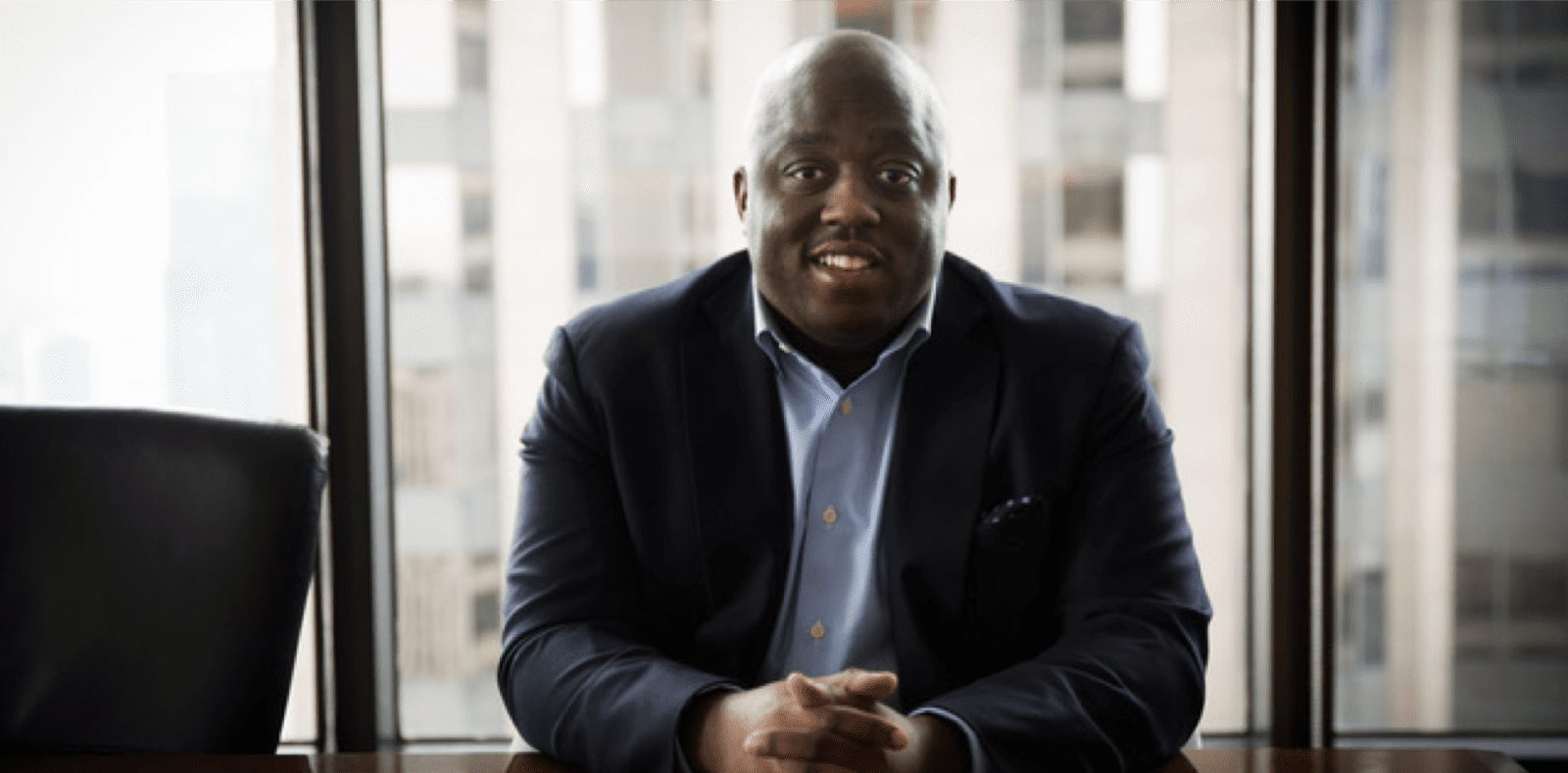
But, no, there’s no legal pathway for the president to change state law like this. I know that there is an army of civil rights attorneys and constitutional law attorneys that are ready to fight this effort. I cannot predict the future of how this will turn out, but what I can guarantee is that there will be significant resistance, and there will be a significant fight. This is wrong, it is unconstitutional, and there will be lots of people lined up at the door to make that case.
I haven’t heard any news or any moves to act on Trump’s threat. We are well suited to resist this and support the changes that we’ve made to make our criminal legal system more fair.. We have the experience of fighting misinformation around 2023. We have had a couple of legislative sessions since the passage of the Pretrial Fairness Act, and we’ve seen legislators stay strong. There is a very strong organizing community in this city and in this region, and I hope that you see from our legislative leaders a desire to not live in a tyrannical state.
As the crime rates in Chicago decline, what role would you prefer to see the federal government play in supporting the city and continue that downward trend?
I’m a lifelong South Sider, I don’t want to act as if our communities aren’t in need of support. And there are billions and billions of dollars that President Trump controls, and those dollars could be used to continue to support the reduction in violence and could be used to support communities that need it. Instead of spray painting the Oval Office gold, he could make the high schools around me look like New Trier, or the hospitals around me look like Northwestern University Medical Center instead.
I think the president has decided to use that money for a photo op to have soldiers that aren’t trained and will, at best, do nothing, and, at worst, possibly get involved in violent conflict, as we’ve seen in Los Angeles, and continue to destabilize our city.
I’m not going to act as if the federal government can’t assist in our continued development. One thing I point to is Washington’s divestment of community violence intervention. You’ve seen tens of millions of dollars being pulled out of strategies that benefit the community’s ability to stop the bullets from flying before they happen.
The focus of this executive order was on bond reform, but Cook County has set up several other reforms, like diversion programs, drug courts, restorative justice, community court, and other pretrial interventions or deferred prosecution programs. Are you concerned whether any of those efforts might be derailed by these attacks on bond reform, since those also kind of share a similar goal of looking at incarceration as a last option?
I think that there’s a lot of support to continue these policies. And it’s not just about reducing incarceration, it is about reducing bad outcomes. Programs like restorative justice courts, diversion programs, they not only reduce the impact that a conviction might have on somebody’s life, they give that person an opportunity to make better decisions. They offer hope for not only that person, but for that person’s community to be safer and more peaceful. I think there will always be energy for that goal.
The conversation has been condensed and lightly edited for clarity.
Sign up and stay up-to-date
Support us
Bolts is a non-profit newsroom that relies on donations, and it takes resources to produce this work. If you appreciate our value, become a monthly donor or make a contribution.


